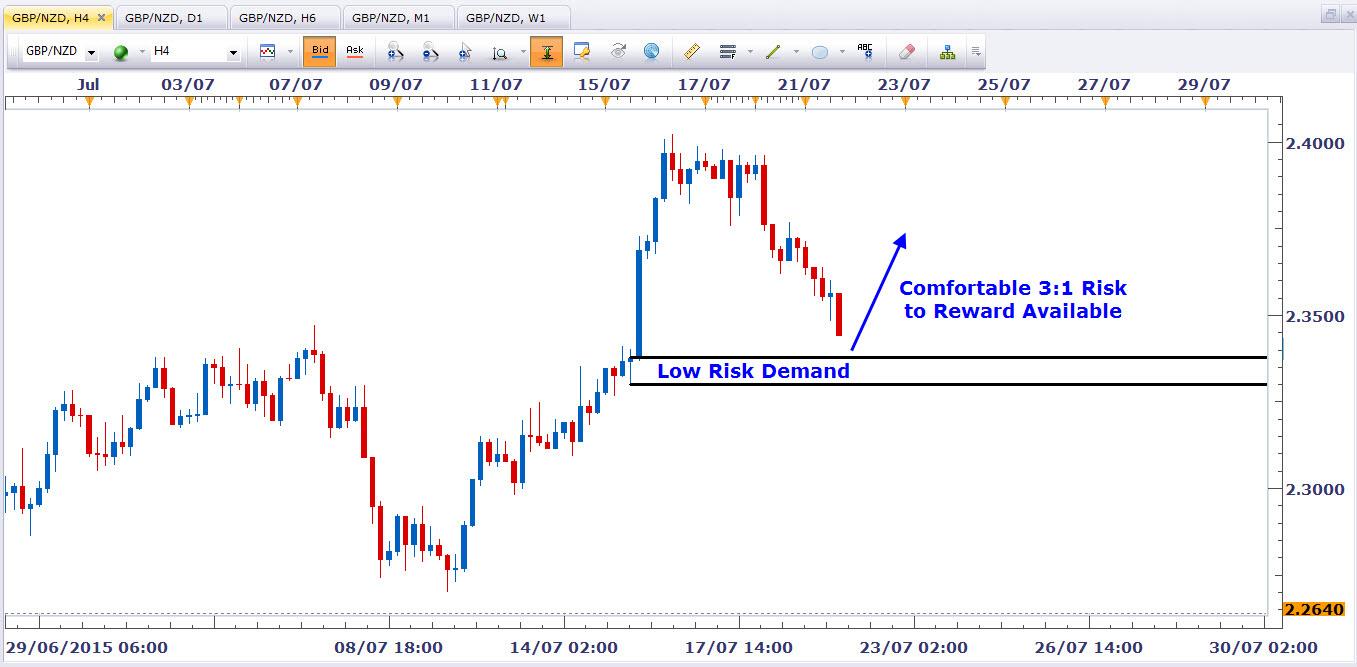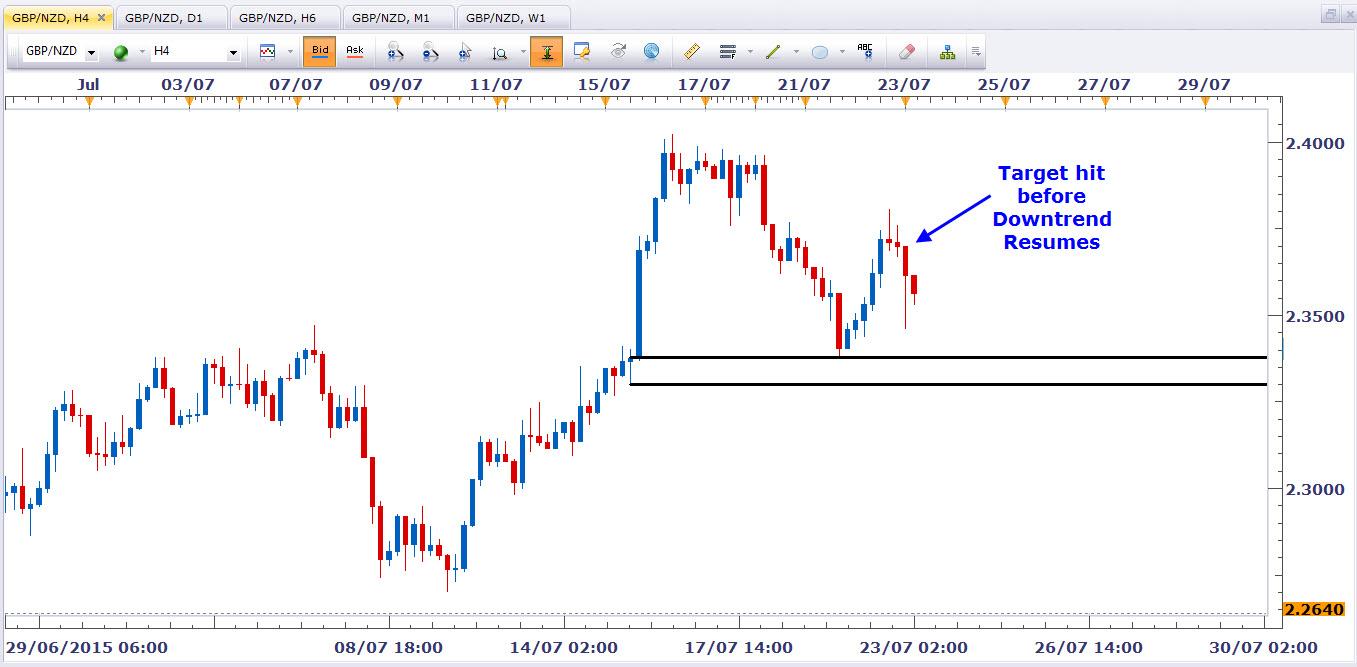![]()
So what is the hardest aspect of trading and investing? Some would say that the constant challenge of never really knowing if the market will rise of fall is tough. Others would suggest that guessing when the best time to take profits is their biggest hurdle. Let’s face it, we all see things in different ways and it is impossible to ever truly master anything. The best we can ever really do is to have a proven plan and follow it; knowing that if we abide by the rules that we set for ourselves and keep probability on our side, then and only then, can we hope to enjoy consistent success and achieve our financial goals for short term income and long term wealth. Looking at it from this perspective highlights to us that if we have a model for success we s imply need to emulate that model, but how difficult can that be? Well my friends, this all depends on your Meta-Programming. Don’t worry, it’s not too scientific but it is one of the most fascinating dynamics of the human thought process. It is really all about understanding how well you know yourself. Let me explain more.
Have you ever wondered why some people are more comfortable taking risks than others? You see this present a lot in the mind-set of the entrepreneur. These people excel at taking risks but they are always controlled risks. Why do they take the risk? Because they see a reward potential that is well worth the risk they are taking in the first place. If you ask me, it is really no different in the world of trading either. If your goal is to make money, it is not going to come out of thin air. Very little is free in this world and, as one of my old business mentors once told me, if you want to play then you have to be prepared to pay. There is no reward in life which does not involve some kind of risk.
So why are some more comfortable with taking a risk than others? Well, as stated before, this is due to their dominant meta-program. When we are born we all have the same needs, that is we are programmed to seek pleasure and avoid pain. I know it’s simple but it is what it is. We know little else of the world around us as we have yet to learn how to communicate with others, but we do know we don’t like it when we feel pain of any kind and take great comfort in various forms of pleasure, like food, warmth and shelter. Pain and pleasure take on many different forms and associations only as we grow older and mature, experiencing new aspects of life and learning more about the world around us and developing our belief system over time. Fast forward to maturity and the feelings of pleasure and pain are far more complex.
Pleasure and pain mean many different things to many different people, but we all find that as we get older we develop a bias to one or the other. For some, the priority in life is to avoid pain at all costs while others are prepared to go through the pain to achieve their ultimate pleasures in life. Depending on your dominant meta-program right now, your attitudes towards risk and reward can be incredibly different. Take a look at the chart below and let’s assess the “pain” and the “pleasure:”
In the above chart of the GBPNZD, we have a low risk buying opportunity to buy the currency pair with an upside profit potential available. The Demand zone shows us that the last time prices were at this level there was a clear imbalance between the willing buyers and willing sellers, resulting in the buyers getting very few of their orders filled and allowing price to rally strongly. By entering a long trade when price returns to the demand level we will clearly have a trade which offers us a decent reward to risk ratio of a least 3:1. The pain would be losing on this trade, but the pleasure is the chance of the win. So, now that we have our plan and analysis done it is time to decide whether or not to take the trade. Sure it could work meaning we make money but we could also lose, right? What drives you most, the win or the loss?
I always say to my students that many people like the idea of trading (the winning) but are not so comfortable with the reality that you will lose trades as well. How comfortable you are with this is mainly due to your programming. Are you driven to take the trade based on the thought of the pleasure of the win or will you pass to avoid the pain of the potential loss? This is a huge question to ask of yourself beforehand, especially if you pass on a trading opportunity because you don’t like the idea of losing, only to see it then do this:
How frustrating would it be to pass this trade up only to see it go the way you had hoped? Sure it may not have worked as well and then you would have been happy you avoided the loss, but then why are you trading in the first place, to make gains or avoid losses? To seek pleasure or avoid pain?
When we are in our comfort zone it can be hard to risk losing some of what you already have in the effort to make more. If you are not prepared to do this then there is little point in continuing to trade at all. If you are truly happy with what you currently have and don’t want to let it go then great, trading is apparently not for you. If, on the other hand, you do feel that life has more in store for you and are prepared to take a controlled risk to gain a great reward, then I would say that you are already half way there. Most times in life you’ll find that, in the long run, there is bigger risk in not taking a controlled risk.
The information provided is for informational purposes only. It does not constitute any form of advice or recommendation to buy or sell any securities or adopt any investment strategy mentioned. It is intended only to provide observations and views of the author(s) or hosts at the time of writing or presenting, both of which are subject to change at any time without prior notice. The information provided does not have regard to specific investment objectives, financial situation, or specific needs of any specific person who may read it. Investors should determine for themselves whether a particular service or product is suitable for their investment needs or should seek such professional advice for their particular situation. Please see our website for more information: https://bustamanteco.com/privacy-policy/
Editors’ Picks

EUR/USD: US Dollar to remain pressured until uncertainty fog dissipates Premium
The EUR/USD pair lost additional ground in the first week of February, settling at around 1.1820. The reversal lost momentum after the pair peaked at 1.2082 in January, its highest since mid-2021.

Gold: Volatility persists in commodity space Premium
After losing more than 8% to end the previous week, Gold (XAU/USD) remained under heavy selling pressure on Monday and dropped toward $4,400. Although XAU/USD staged a decisive rebound afterward, it failed to stabilize above $5,000.

GBP/USD: Pound Sterling tests key support ahead of a big week Premium
The Pound Sterling (GBP) changed course against the US Dollar (USD), with GBP/USD giving up nearly 200 pips in a dramatic correction.

Bitcoin: The worst may be behind us
Bitcoin (BTC) price recovers slightly, trading at $65,000 at the time of writing on Friday, after reaching a low of $60,000 during the early Asian trading session. The Crypto King remained under pressure so far this week, posting three consecutive weeks of losses exceeding 30%.

Three scenarios for Japanese Yen ahead of snap election Premium
The latest polls point to a dominant win for the ruling bloc at the upcoming Japanese snap election. The larger Sanae Takaichi’s mandate, the more investors fear faster implementation of tax cuts and spending plans.
RECOMMENDED LESSONS
Making money in forex is easy if you know how the bankers trade!
I’m often mystified in my educational forex articles why so many traders struggle to make consistent money out of forex trading. The answer has more to do with what they don’t know than what they do know. After working in investment banks for 20 years many of which were as a Chief trader its second knowledge how to extract cash out of the market.
5 Forex News Events You Need To Know
In the fast moving world of currency markets where huge moves can seemingly come from nowhere, it is extremely important for new traders to learn about the various economic indicators and forex news events and releases that shape the markets. Indeed, quickly getting a handle on which data to look out for, what it means, and how to trade it can see new traders quickly become far more profitable and sets up the road to long term success.
Top 10 Chart Patterns Every Trader Should Know
Chart patterns are one of the most effective trading tools for a trader. They are pure price-action, and form on the basis of underlying buying and selling pressure. Chart patterns have a proven track-record, and traders use them to identify continuation or reversal signals, to open positions and identify price targets.
7 Ways to Avoid Forex Scams
The forex industry is recently seeing more and more scams. Here are 7 ways to avoid losing your money in such scams: Forex scams are becoming frequent. Michael Greenberg reports on luxurious expenses, including a submarine bought from the money taken from forex traders. Here’s another report of a forex fraud. So, how can we avoid falling in such forex scams?
What Are the 10 Fatal Mistakes Traders Make
Trading is exciting. Trading is hard. Trading is extremely hard. Some say that it takes more than 10,000 hours to master. Others believe that trading is the way to quick riches. They might be both wrong. What is important to know that no matter how experienced you are, mistakes will be part of the trading process.
The challenge: Timing the market and trader psychology
Successful trading often comes down to timing – entering and exiting trades at the right moments. Yet timing the market is notoriously difficult, largely because human psychology can derail even the best plans. Two powerful emotions in particular – fear and greed – tend to drive trading decisions off course.




